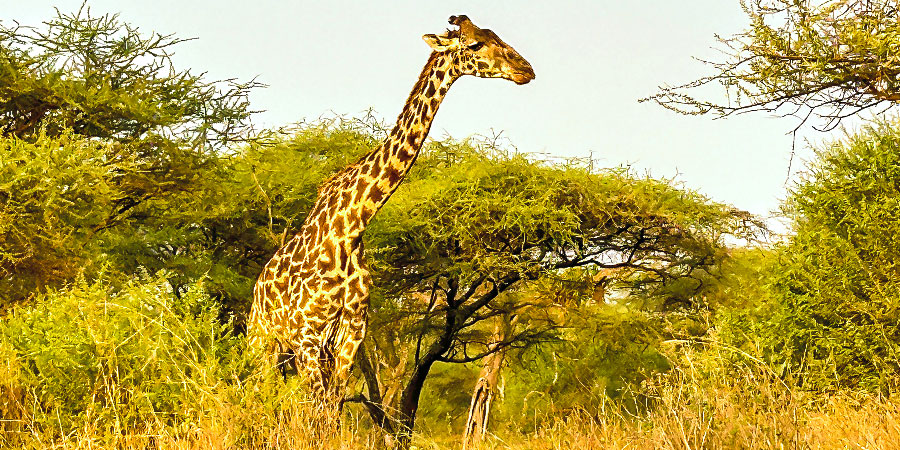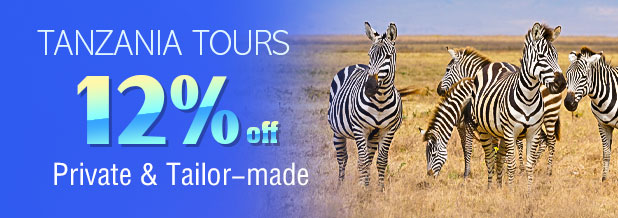Tanzania Travel Tips
Visa
Most of the countries’ citizens can apply for Visa on Arrival in Tanzania, like America, England, Canada and Australia. It is USD 50/per person/three months. And make sure you are well-prepared with your documents in advance if you choose Visa on Arrival.

Giraffes Roaming in Serengeti NP
|
Take Vaccination before Entry
When you are leaving for Tanzania, remember to bring your International Certificate of Vaccination or Prophylaxis. According to it, vaccination against yellow fever is a must, and you should get it at least 10 days before departure. The immunization period of yellow fever vaccination is effective within 10 years from the 10th day after vaccination.
Things to Take
► Sunscreen, sunglasses, hats and so on;
► Drugs, like antiphlogistic, medicines for carsickness, colds, diarrhea and malaria;
► Telescope and long-focus camera. If you plan to watch animal migration, telescope is very important, for most animals are far away from you.

Go on a Safari in Tarangire NP
|
What to Wear
Given that Tanzania is in tropical area, light clothes are suitable. And try to avoid wearing bright-colored clothes in field explorations, for they may stimulate the animals. Colors like brown or purple are good choices. You can also take a sweater to keep out the cold in the morning and evening. Tourists planning to climb Mt. Kilimanjaro and Mt. Meru should prepare high-quality climbing shoes.
Accommodation
There are many kinds of hotels in this country for different levels of consumer demand. One night in a star rated hotel costs from USD 150 - 350. Economy hotels are much cheaper, generally USD 30 - 60 per night.

Camping in Serengeti
|
Food and Drink
Tanzanian food is generally greasy and spicy with strong flavors. They favor a kind of traditional food made of corn flour with sugar and coconut oil named “Ubowabowa Hand Pilaf”. When eating this kind of food, it usually goes with the soup made of beef, curry, onion, tomatoes.
Tap water here is undrinkable, so remember not to drink running water or use it to brush teeth.
Tipping
It is common practice to tip drivers or waiters in Tanzania. In general, you need to tip your guides or drivers USD 10-15 per day.
Electricity
The voltage in Tanzania is 50 hertz, 220 volts. The sockets are mainly British style, also known as type G.

Natives Playing Music in Tanzania
|
Wifi
Wifi is available in major hotels, but the internet speed is slow in most cases. Besides, international roaming is very money-consuming, so it is advisable to buy a local SIM card for daily communication.
Dos and Don’ts in Tanzania
1. Remember to keep a certain distance from wildlife, and not to disturb their lives intentionally.
2. Make sure to follow the guide’s advice for the sake of your safety.
3. For self-driving tourists, it is not appropriate to park vehicles at will in national parks. Instead, you should park them in the designated area according to the rules.
4. Do not pass things to local people with your left hand, for they consider left hand is unclean.
5. 30% of Tanganika residents believe in Islam, and Muslims do not eat pork or use pig products, nor do they talk things about pig, so keep these in mind when dealing with Muslims.


